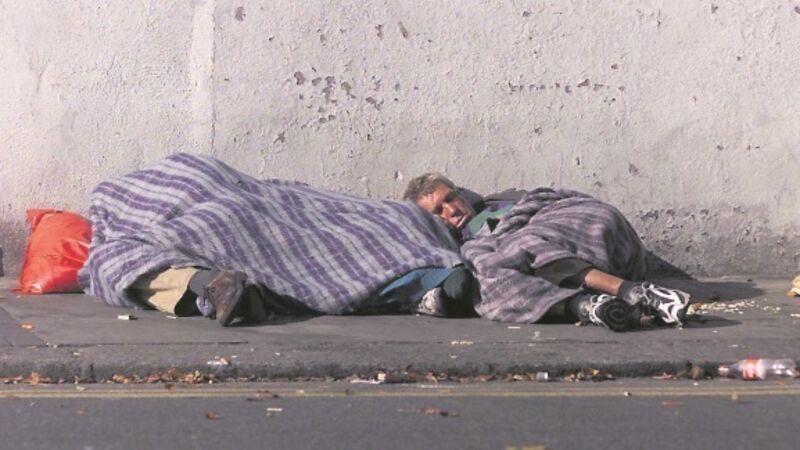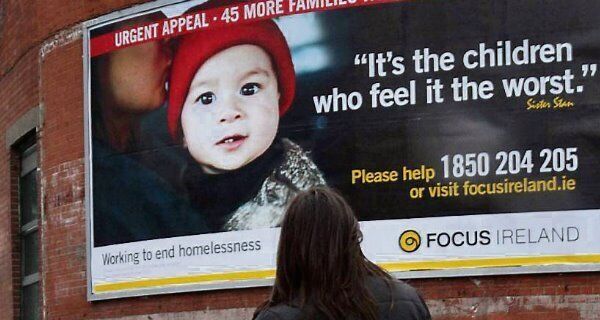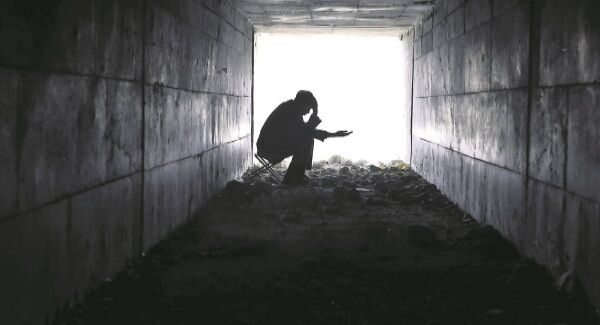The homelessness crisis makes me ashamed to be Irish

TWELVES weeks ago, I started a professional placement with a family support project in a disadvantaged area of Cork City. This is the first of two 14-week placements I must complete as part of my social work degree in University College Cork. Project workers encounter a multitude of different issues daily. Their work can encompass addiction, mental ill-health, domestic abuse, child development, and a litany of other challenges, and all in a single morning.
My experience of vulnerable families in disadvantaged communities has been overwhelming, and hugely humbling. However, amidst all the challenging issues, one stands out: homelessness. We have heard, ad nauseam, about homelessness for the past number of months. Yet, most of us still have no idea just how bad the issue is. While I always read the stories about the rise in homelessness, I could never fully relate to, or comprehend, the issue until now.
It was a rainy Tuesday and my practice teacher and I were parked on the Western Road. I peered up, to get a better view of the B&B that had become obscured since we had parked the car. Next to me, my practice teacher spoke on the phone, anxiety and concern evident in her voice.
“She’s up in Drinan street collecting the cheque,” said the distressed voice on the other end of the phone.
Meanwhile, just a 10-minute walk away, a young woman and her three-year-old child queued in a small office on a side street, seeking financial assistance so that they could access the security and warmth of the B&B I now had in my view. She desperately needed the cheque for which she was queuing, but that desperation had become her normality. Living dawn to dark, not knowing where her temporary hearth would lay the following day had become her daily ritual. This had become the daily ritual of many.

Unfortunately, the plight facing the young woman and child is no longer unusual. Bedrooms have become homes and are shared between parents and children, while emergency accommodation units for homeless women and children are bursting at the seams.
A few days after that rainy day on the Western Road, I stood in a kitchen that overlooked a large slice of the cityscape. Houses littered the hills of the rolling landscape, for as far the eye could see.
Peering out that window, it seemed cruelly ironic that we shared this view with a mother-of-six who was soon to become homeless, a pawn to an unforgiving private rental market and an overburdened social housing system; priced out of one, seemingly unable to access the other.
It felt hugely disempowering, as my practice teacher and I stood there, hugely aware that the support of our shoulders was all that we could provide, when the protection of a roof was what this woman and her family really needed.
But, in my experience thus far, that is the reality facing family support projects and community services. Tasked with supporting families, but unable to perform miracles, they work with the real-life consequences of government cuts, inadequate resources, and political choices.
In recent days, I spoke with workers from one of the main residential units involved in providing shelter to women and children in Cork City. I wanted further context.
At the time of writing, this one unit had 10 families sleeping there every single night. Coupled with the additional 18 single women that sleep there every night, this means they are consistently at full capacity, and have been for some time. They also had 23 families, accompanied by 39 children, waiting to access their unit and/or services.

An outreach worker within the same unit, who is tasked with engaging women and families in B&Bs and hotels, gave further context. At the time of writing, this worker is engaged with 13 families and 37 children, all living in B&Bs or hotels.
Shockingly, she relayed to me how she was actively engaged with 18 families and 46 children, in B&B’s or hotels, throughout the city.
The homelessness crisis was entirely avoidable, so it is incumbent upon the incoming government to truly understand the daily reality facing men, women, and children most especially, in towns and cities throughout Ireland. The time for empty rhetoric is over. The general election posters have come down, yet their promises still stain the air.
‘We will never fail children again’, our nation cried, as report after report on institutional abuse shamed our state, and our people.
Yet, here we are again, allowing our political system to fail children.
What kind of ‘recovery’ leaves innocent children without a home? What kind of state is happy to deny a small child the comfort of their own bed? On the centenary of Easter 1916, it is ironic that while I harvest enormous hope from having witnessed such incredible work over the past three months, my experience of the homelessness crisis has ensured that I have never been less proud to be Irish.















